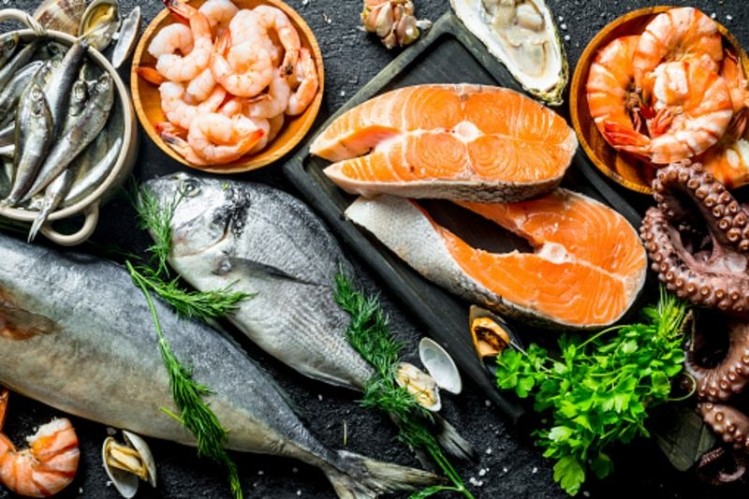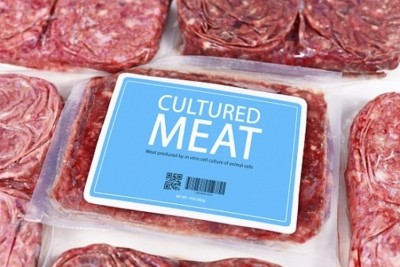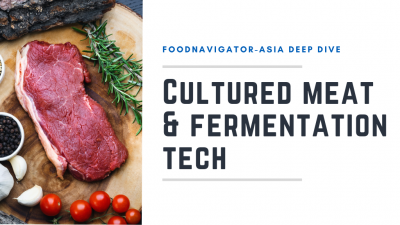Asian appeal: Bluu Seafood pledges region-specific cultivated fish products

Primarily based out of Germany, Bluu Seafood has had far less presence in the Asia Pacific region thus far compared to local cultivated seafood firms such as Shiok Meats or Avant, but the firm appears to be trying to make up for this in terms of timing by having recently announced its plans for Singapore to be the first market to see its products go on sale, expecting this to take place by late 2023.
“We have finalised product development for fish balls and fish fingers, creating products that contain cultivated fish as their main ingredient [but also] contain plant-based proteins to optimise texture,” Bluu Seafood Founder and CEO Dr Sebastian Rakers told FoodNavigator-Asia.
“These products have reached the desired quality and do not differ in taste, cooking behaviour or mouthfeel from their conventional counterparts - With these products, we are now ready to start the approval process for various markets, starting with Singapore.
“These are considered ready for go-to-market, but we are just awaiting the regulatory approval first, which we expect to happen by the end of 2023 in Singapore provided regulatory processes evolve at the current pace we see.”
For the APAC region, Dr Rakers highlighted that product innovation has focused on creating ‘region-specific features’ to ensure acceptance by local consumers, in terms of product format, flavours and fish species.
“Our international product development team has been working on region-specific features of our products early on – [It is through this that] in addition to our first product, European fish fingers, we have also developed a range of prototypes of fish balls, a popular food item in many Asian countries,” he said.
“For these products we are not only adapting the form factor, but also texture and taste - e.g. we know that consumers in APAC are in favour of a very specific umami taste [so we have tried to work with this].
“Additionally, salmon has been broadly gaining popularity in Asia over the past few years and also is one of the species we have expertise in - with our immortalised Atlantic salmon cells lines and [work on developing] more complex products such as salmon sashimi and fillets, we hope to meet Asian consumers’ demands in the coming years.”
Bluu Seafood currently specialises in the development of three proprietary fish cell lines: Atlantic salmon, rainbow trout, and carp, which all have fully decoded genomes, though the firm plans to expand its reach to more types of fish and seafood moving forward, as well as to more countries in and out of Asia.
“APAC is extremely important for us as it is the world's largest market when it comes to fish & seafood consumption. We are focused more on Singapore as a first target market due to its progressive regulatory environment for novel foods at present, [but] we want to expand more to other APAC countries too,” said Dr Rakers.
“These include markets like China, Japan, South Korea, Vietnam and more in the future.
“Apart from these, we are also focusing on other large seafood markets such as the US, the UK, and the EU. In terms of regulations here, the FDA is also advancing in its assessment of cultivated proteins with cultivated meat driving the process and in the UK we believe obtaining cultivated proteins approval will be faster than in the EU, as the country has promised to streamline processes post leaving the EU.”
Fierce competition not a major concern
Bluu Seafood’s reasons for targeting Asia as a major market do also apply to multiple other cultivated seafood firms, including various others that do have some geographical advantage by being physically situated in the region.
When asked whether this fierce competition is a major concern for Bluu Seafood, particularly with it coming from outside of the region and potentially losing the local advantage, Dr Rakers stressed that at this point the market is large enough that this is not a major point of concern.
“Given the gigantic size of the fish & seafood market of some US$354.4bn, we do not see other Asian companies as competitors, but rather welcome any activity in the sector that advances the understanding of and interest in cultivated proteins,” he said.
“Bluu Seafood follows a collaborative approach and we work with partners in the region - In China for example, [cultivated pork firm] CellX is one of them and we exchange knowledge on cell biology, growth media, as well as commercialisation and regulatory processes in our respective geographies.
“To prepare the upcoming approval in Singapore, Bluu is already scouting production facilities in the region to make sure, that we have easy access to the markets and only short distances to cover from a logistics perspective.















